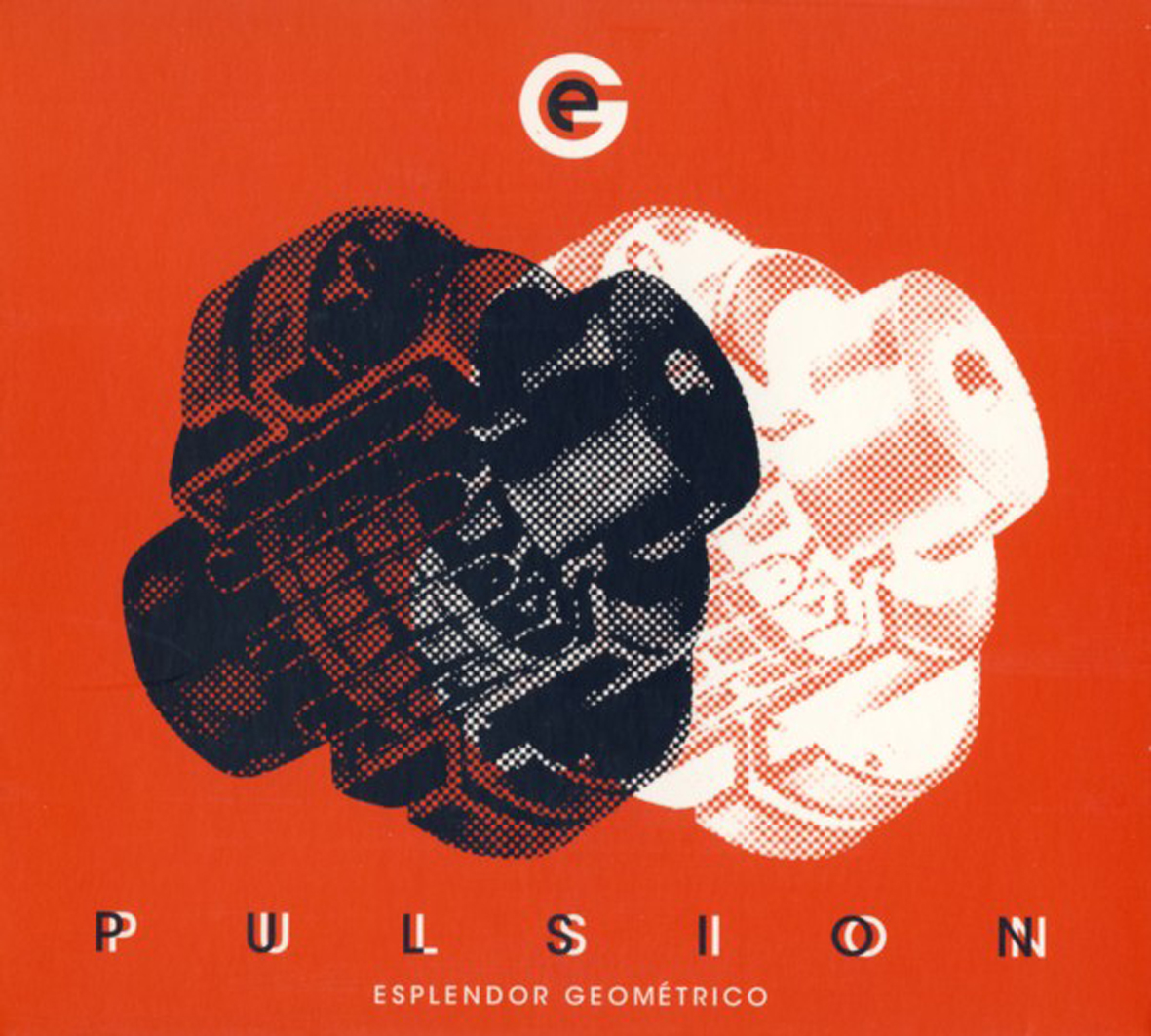 Recently, I have been delving deeper and deeper into Esplendor Geométrico's discography and it has become increasingly clear to me that their prime never actually ended.  Arturo Lanz and his varying bandmates have certainly released some comparatively uneven or tame efforts over the course of their three-decade career, but Lanz has never stopped being a rhythmic genius and can still unleash a crushing masterpiece at any time.  One such gem, "Aplicación Insospechada," comes at the end of this intermittently impressive (and woefully underappreciated) 2009 effort.
Recently, I have been delving deeper and deeper into Esplendor Geométrico's discography and it has become increasingly clear to me that their prime never actually ended.  Arturo Lanz and his varying bandmates have certainly released some comparatively uneven or tame efforts over the course of their three-decade career, but Lanz has never stopped being a rhythmic genius and can still unleash a crushing masterpiece at any time.  One such gem, "Aplicación Insospechada," comes at the end of this intermittently impressive (and woefully underappreciated) 2009 effort.
While there are some Esplendor Geométrico albums that have a clear, distinctive character that sets them apart from the rest of the Spanish industrialists' oeuvre, Pulsión is not one of them.  That is neither a good nor a bad thing, but it certainly makes it challenging to articulate what makes it special.  With few exceptions, nearly every EG album is essentially a collection of incredibly dense, bludgeoning grooves coupled with snatches of dialogue or non-musical chaos.
For this particular effort, those snippets of found audio tend to be extreme right- or left-wing political speeches spanning several different cultures, but they were all chosen for their sound rather than their content.  Deeper meaning (along with melody and nuance) is simply beside the point for Lanz and Saverio Evangelista: those are things that humans care about–EG's aim to be as immensely and hypnotically inhuman as possible.  When they succeed at that, they succeed spectacularly.  Case in point: the aforementioned "Aplicación Insospechada" sounds like a giant factory suddenly became sentient and synchronized itself into a crunching, mechanized, and absolutely earth-shaking groove.
Of course, while the massive, machine-like beat is certainly the most important part of the EG aesthetic, it is not the only part.  Pulsión's finest moments occur when there is a strong synergy between the percussive elements and the more "musical" elements.  "Aplicación Insospechada" absolutely nails it on that count, as its insistent car-compactor crunch is nicely balanced by creepily lilting loop that sounds like chanting children.  Evangelista and Lanz hit upon another perfect combination with the aberrant "Ondas Transparentes," which combines an oddly croaking and distortion-free Latin rhythm with a weirdly shifting and hallucinatory loop of more chanting.
None of the other songs on the album quite hit those same heights, but a few other pieces manage to succeed purely on sheer power and obsessive repetition, most notably "Japo," which boasts an unstoppably heavy beat beneath a recording of a very impassioned Japanese dissident.  "Michi Michi" also works quite well, simply because it throws all attempts at musicality out the window in favor of an absolutely bludgeoning thump buffeted by washes of white noise.
As for the remainder, they are basically business-as-usual for Arturo and Saverio, which is generally a good thing, except for one caveat: while nobody crafts beats as dense, visceral, and mesmerizing as Esplendor Geométrico, their mid-level material definitely starts to yield diminishing returns after while.  That situation seems unavoidable, as Lanz truly lives or dies with his rhythms.  Every song is essentially a frill-free vamp with no real development or anything else to grasp onto–either a groove hits the mark and floors me or it does not (and grows stale very quickly).  That said, this is a very strong effort amidst a remarkably solid catalog and I am not sure any EG album could be much better.  Consequently, this is probably as good an entry to a rather singular and crucial band as any for a newcomer.  Those already familiar with Lanz's work will not want to miss either "Ondas Transparantes" or "Aplicación Insospechada," as they are easily as canonical as anything recorded during the band's '80s/early '90s heyday.
 
Read More

